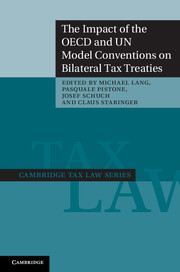Book contents
- Frontmatter
- Contents
- Contributors
- Preface
- Table of cases
- Table of statutes
- General report
- 1 Argentina
- 2 Australia
- 3 Austria
- 4 Belgium
- 5 Brazil
- 6 Canada
- 7 Chile
- 8 China
- 9 Colombia
- 10 Croatia
- 11 The Czech Republic
- 12 Estonia
- 13 Finland
- 14 France
- 15 Germany
- 16 Hong Kong
- 17 Hungary
- 18 India
- 19 Italy
- 20 Lebanon
- 21 Liechtenstein
- 22 The Netherlands
- 23 New Zealand
- 24 Norway
- 25 Peru
- 26 Poland
- 27 Portugal
- 28 Romania
- 29 The Russian Federation
- 30 Serbia
- 31 Slovakia
- 32 Slovenia
- 33 Spain
- 34 Sweden
- 35 Uganda
- 36 The UK
- 37 The USA
- Index
- References
30 - Serbia
Published online by Cambridge University Press: 05 November 2014
- Frontmatter
- Contents
- Contributors
- Preface
- Table of cases
- Table of statutes
- General report
- 1 Argentina
- 2 Australia
- 3 Austria
- 4 Belgium
- 5 Brazil
- 6 Canada
- 7 Chile
- 8 China
- 9 Colombia
- 10 Croatia
- 11 The Czech Republic
- 12 Estonia
- 13 Finland
- 14 France
- 15 Germany
- 16 Hong Kong
- 17 Hungary
- 18 India
- 19 Italy
- 20 Lebanon
- 21 Liechtenstein
- 22 The Netherlands
- 23 New Zealand
- 24 Norway
- 25 Peru
- 26 Poland
- 27 Portugal
- 28 Romania
- 29 The Russian Federation
- 30 Serbia
- 31 Slovakia
- 32 Slovenia
- 33 Spain
- 34 Sweden
- 35 Uganda
- 36 The UK
- 37 The USA
- Index
- References
Summary
The relevance of the OECD and UN Model Conventions and their Commentaries for the interpretation of Serbian tax treaties
General remarks: the ‘succession’ drama
Before venturing into the topic of the impact of the OECD Model Tax Convention on Income and on Capital (OECD Model) and the United Nations Model Double Taxation Convention between Developed and Developing Countries (UN Model) and their Commentaries on bilateral tax treaties in Serbia, it would be prudent to analyse one of the specifics of this jurisdiction, which was caused by its rather turbulent recent past.
The last decade of the twentieth century in Europe brought on several examples of an otherwise rare occurrence – universal succession of the fiscus. Namely, three states ceased to exist: USSR, Czechoslovakia and the Socialist Federal Republic of Yugoslavia (SFR Yugoslavia). Newly formed states became their universal successors, taking over the taxing rights and obligations which were once in the jurisdiction of the countries of which they were part. Despite the fact that, unlike in the cases of Czechoslovakia and the USSR, the break-up of the SFR Yugoslavia during 1991 and 1992 was not amicable, five newly formed states that were recognized as independent by the international community in the beginning of 1992 are considered as its successors: Bosnia and Herzegovina, Croatia, the Federal Republic of Yugoslavia, the Former Yugoslav Republic (FYR) of Macedonia and Slovenia. The Federal Republic of Yugoslavia was made up of two constituent republics: Serbia and Montenegro.
- Type
- Chapter
- Information
- Publisher: Cambridge University PressPrint publication year: 2012



